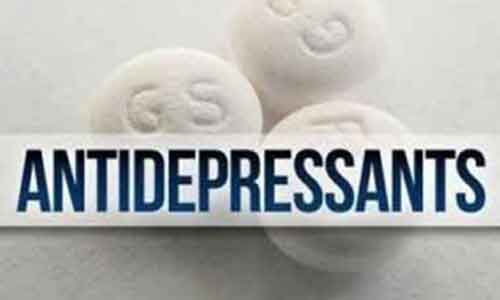- Home
- Medical news & Guidelines
- Anesthesiology
- Cardiology and CTVS
- Critical Care
- Dentistry
- Dermatology
- Diabetes and Endocrinology
- ENT
- Gastroenterology
- Medicine
- Nephrology
- Neurology
- Obstretics-Gynaecology
- Oncology
- Ophthalmology
- Orthopaedics
- Pediatrics-Neonatology
- Psychiatry
- Pulmonology
- Radiology
- Surgery
- Urology
- Laboratory Medicine
- Diet
- Nursing
- Paramedical
- Physiotherapy
- Health news
- Fact Check
- Bone Health Fact Check
- Brain Health Fact Check
- Cancer Related Fact Check
- Child Care Fact Check
- Dental and oral health fact check
- Diabetes and metabolic health fact check
- Diet and Nutrition Fact Check
- Eye and ENT Care Fact Check
- Fitness fact check
- Gut health fact check
- Heart health fact check
- Kidney health fact check
- Medical education fact check
- Men's health fact check
- Respiratory fact check
- Skin and hair care fact check
- Vaccine and Immunization fact check
- Women's health fact check
- AYUSH
- State News
- Andaman and Nicobar Islands
- Andhra Pradesh
- Arunachal Pradesh
- Assam
- Bihar
- Chandigarh
- Chattisgarh
- Dadra and Nagar Haveli
- Daman and Diu
- Delhi
- Goa
- Gujarat
- Haryana
- Himachal Pradesh
- Jammu & Kashmir
- Jharkhand
- Karnataka
- Kerala
- Ladakh
- Lakshadweep
- Madhya Pradesh
- Maharashtra
- Manipur
- Meghalaya
- Mizoram
- Nagaland
- Odisha
- Puducherry
- Punjab
- Rajasthan
- Sikkim
- Tamil Nadu
- Telangana
- Tripura
- Uttar Pradesh
- Uttrakhand
- West Bengal
- Medical Education
- Industry
Antidepressants combo superior to monotherapy in treatment of acute depression: JAMA

Germany: A recent study in the journal JAMA Psychiatry found combinations of antidepressants compared with antidepressant monotherapy to be associated with superior treatment outcomes but not with more patient dropout. Further, the use of an antagonist of presynaptic α2-autoreceptors was found to be preferable and may be applied as first-line treatment in cases of severe depression and for patients who are nonresponders to monotherapy.
Combined antidepressants are frequently used for the treatment of acute depression, but studies have shown conflicting results. Jonathan Henssler, University of Cologne Medical School, Cologne, Germany, and colleagues, therefore, aimed to assess the efficacy and tolerability of combination therapy in a systematic review and meta-analysis. Combinations using presynaptic α2-autoreceptor antagonists or bupropion were investigated separately.
For this purpose, the researchers searched the online databases from inception through January 2020 and included randomized controlled trials (RCTs) comparing combinations of antidepressants with antidepressant monotherapy in adult patients with acute depression.
A literature search, study selection, data extraction, and evaluation of risk of bias was independently performed by 2 reviewers following guidelines from Preferred Reporting Items for Systematic Reviews and Meta-analyses (PRISMA) and recommendations from the Cochrane Handbook.
Efficacy measured as standardized mean difference (SMD) was the primary outcome. Remission, response change from baseline in rating scale scores, number of dropouts, and number of dropouts due to adverse events were the secondary outcomes.
A total of thirty-nine RCTs including 6751 patients were eligible for the study. Given below are the study's key findings:
- Combination treatment was statistically significantly associated with superior treatment outcomes relative to monotherapy (SMD = 0.31).
- Combining a reuptake inhibitor with an antagonist of presynaptic α2-autoreceptors was superior to other combinations (SMD = 0.37).
- Bupropion combinations were not superior to monotherapy (SMD = 0.10).
- Numbers of dropouts and dropouts due to adverse events did not differ between treatments.
- Studies were heterogeneous, and there was indication of publication bias (Egger test result was positive), but results remained robust across prespecified secondary outcomes and sensitivity and subgroup analyses, including analyses restricted to studies with low risk of bias.
To conclude, in this meta-analysis of RCTs that compared combinations of antidepressants with antidepressant monotherapy, combining antidepressants was associated with superior treatment outcomes but not with more patients dropping out of treatment.
Reference:
Henssler J, Alexander D, Schwarzer G, Bschor T, Baethge C. Combining Antidepressants vs Antidepressant Monotherapy for Treatment of Patients With Acute Depression: A Systematic Review and Meta-analysis. JAMA Psychiatry. Published online February 16, 2022. doi:10.1001/jamapsychiatry.2021.4313
Dr Kamal Kant Kohli-MBBS, DTCD- a chest specialist with more than 30 years of practice and a flair for writing clinical articles, Dr Kamal Kant Kohli joined Medical Dialogues as a Chief Editor of Medical News. Besides writing articles, as an editor, he proofreads and verifies all the medical content published on Medical Dialogues including those coming from journals, studies,medical conferences,guidelines etc. Email: drkohli@medicaldialogues.in. Contact no. 011-43720751


